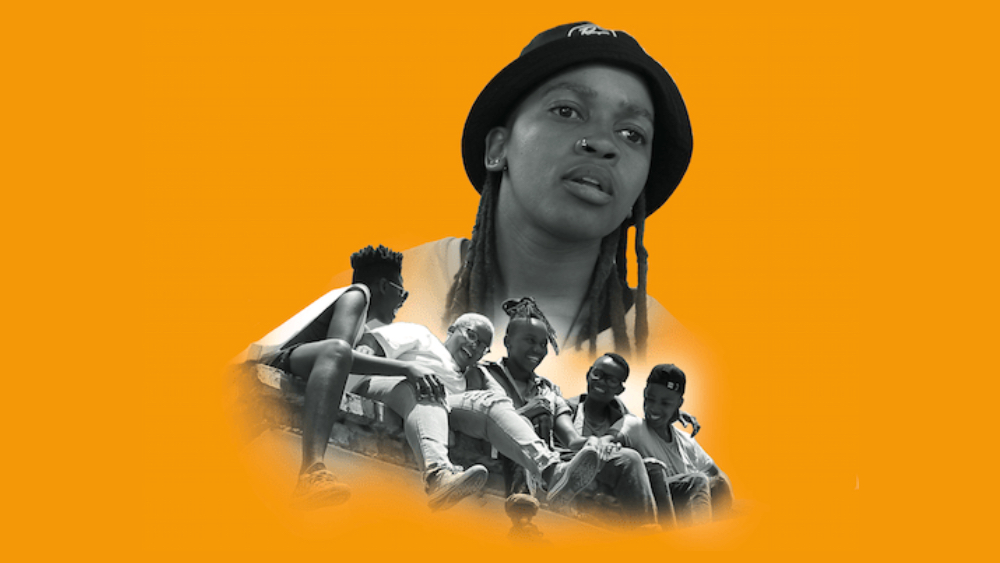If you’re interested in sharing your opinion on any cultural, political or personal topic, create an account here and check out our how-to post to learn more.
____
Living in not-so-great neighborhoods in South Africa as a Black queer woman opens one up to severe homophobia that often leaves one traumatized. I decided instead of acting out in public and fighting with everyone who hurts me, I should put a pen to paper and write a script about the kind of world I would ideally want to live in as a Black queer woman. So, my film Gang 888 was born — also inspired by the passing of a young Black woman named Uyinene Mrwetyana and a Black gay man by the name Lindo Cele.
I channelled all my anger, fears and feelings towards homophobic men, and wrote the script for Gang 888. I wanted to represent Black queer women as strong, independent women who are not afraid of taking control of a situation if need be.
South Africa has the highest femicide rate in the world and is also becoming the most violent state against queer bodies. So, I decided to create a reality where women are the ones with power, specifically Black queer women, to truly make people see us differently and to inspire unity and power within our LGBT community.
Because of these femicide rates and Black queer deaths, all at the hands of Black men, and my anger at how I was experiencing homophobia almost daily from both men and women, I was become increasingly agitated and triggered by how people were not understanding my reality and how hurtful it is to experience such psychological abuse almost daily. I had no means to pay for therapy, as I had no job, and I did not have a community of people I could trust to share my experiences with.
I was also recovering from my traumatic past, where I had been gaslit and projected on by members of the South African LGBT community, after an ex maliciously shared one-sided details of our relationship on Twitter and Facebook from 2017 to 2019.
She attended my 2018 “dykes only party” and was accompanied by police, bringing fake restraining orders to further re-traumatize me, as I had a bad experience with police in late 2017. She had been speaking to people from the South Africa LGBT community, painting herself as a victim for years without accounting for her part of the breakdown of our past.
No one wanted to hear my side of the story, but they continued to smear me with their venom without truly checking in to see how I was and what could have happened between us. For years I have been re-traumatized by Black queer South Africans who called me all kinds of names on social media.
This all reminded me what growing up in the Eastern Cape felt like. I lost both of my parents at nine years old. My paternal family was not well-off, but they took me in, and since then I was physically and emotionally abused and rejected by them. I never felt good enough, my feelings were invalidated and I grew up caring more for others more than I did for myself. My life has felt like a huge gaslight for years and I had to put on a happy mask to protect myself.
Through all this trauma I’ve experienced, I decided to take a healthy direction, one that includes healing and only taking responsibility for what is mine: actions, flaws, reality and dreams.
I also believed that somewhere out there, I could find a tribe of healthy Black and queer people who would accept me for who I truly am and not judge me for my past. I just wanted to feel safe, seen and heard, especially by people who look like me. I also wanted people to truly understand that progress is possible for people who are committed to heal.
I should be resentful and hateful after all I have been through, but I choose peace. I choose to still care, even for those who do not care for me. I truly believe in love, compassion and understanding. I believe with positivity we can overcome even the darkest and most hateful of circumstances. I also believe that physical power has its place to fight against injustices.
For me true power comes from within, and I am sharing mine with the world to inspire people who do not come from great backgrounds to believe that they can overcome anything.
Embrace your uniqueness, lift other Black people up instead of putting them down and confront your own issues before you try and knock others over.
Black queer women are godly. Black queer women deserve all the love in the world. And Black queer women are not to be f**ked with.
____
Banzii Mavuso is the writer and director of ‘Gang 888’, by produced by Blvck Queer and Kvmma Creative Studios.

